Macmillan Cancer Support aims to help everyone with cancer live life as fully as they can, by providing physical, financial and emotional support, however big or small the support needs to be.
The charity was looking for a way to support healthcare professionals and volunteers to have good quality and empathetic conversations with people living with cancer. The quality of medical care offered by Macmillan healthcare professionals is exceptional. Yet the pressures of the role and fears around saying the wrong thing can get in the way of having the quality conversations that make a big difference to people living with cancer.
Having seen us demonstrating our work on Hear to Listen at Learning Technologies in 2022, the team at Macmillan got in touch. Together, we developed Time to Explore, a solution designed to put the learner in the shoes of the person living with cancer and give them a unique perspective on how it feels to be on the receiving end of conversations.
“I really liked the module and how the interaction section worked (though don’t like seeing myself played back!). I thought it was well set out and covered everything I expected and more. Apart from the 3-day advanced communications skills training I completed years ago (with actors), this is the best module I’ve seen on communication skills.”
– Reviewer who works in Cancer Care
The goal was to help healthcare professionals practise having conversations that focus more on the person and less on their cancer diagnosis, helping learners to have compassionate and meaningful conversations about the things that matter most to people with cancer.
Better quality conversations bring benefits for people living with cancer and healthcare professionals alike. Feeling ‘known’ as a person, not just for an illness, is shown to increase psychological quality of life and help people manage their health better. For healthcare professionals, compassion-driven conversations can help both their mental and physiological well-being. They can also help reduce feelings of moral distress and burnout.
This audience would include any Macmillan healthcare professionals and non-clinical staff: everyone from volunteers with little to no medical background, through to nurses and other medical specialists.
For many of the intended audience, demands on their time, energy and emotional wellbeing impact their ability to have the best possible person-centred conversations.
The learning module has three key topics:
The module follows a person living with cancer, Femi, as he navigates the news of his cancer diagnosis and how he comes to Macmillan to get support.
The first topic builds the learner’s awareness of why good quality conversations matter, by showing them the first meeting between a Macmillan support worker, Claire, and Femi. The learner sees the encounter twice from both Claire and Femi’s perspectives.
At first, Claire’s way of handling the conversation seems reasonable enough, as she tries to connect with Femi in the best way that she can after a difficult morning. But when the perspectives switch and learners see Femi’s point of view, it becomes clear where the conversation is falling short and, more importantly, how Femi ends up feeling unsupported in an extremely hard time.
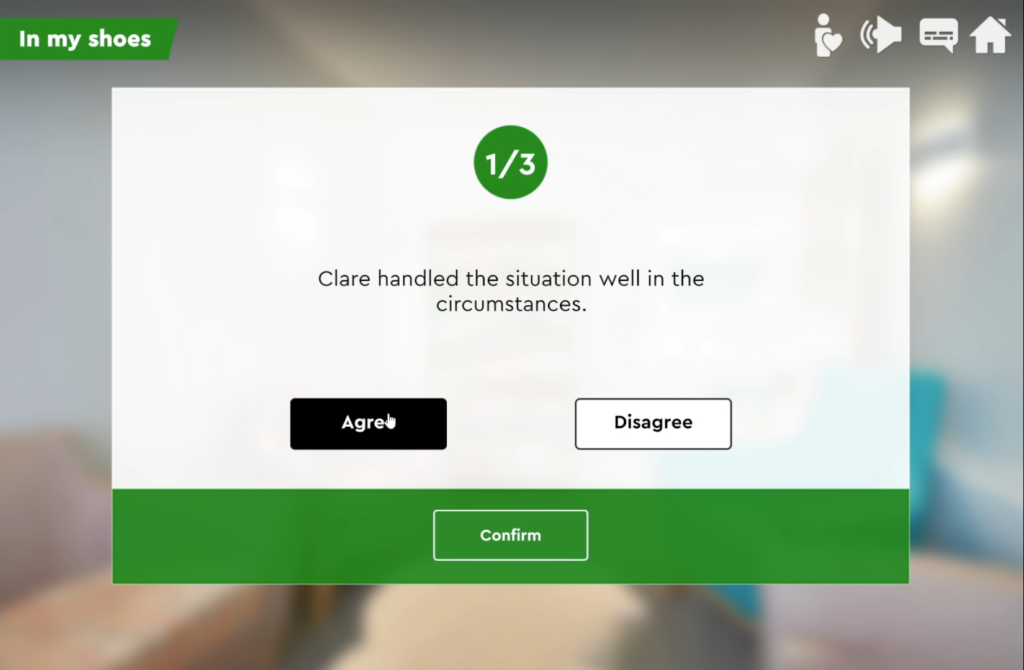
In the second topic, learners practise identifying specific opportunities to make improvements during Femi’s Holistic Needs Analysis (HNA) with Claire. This time, learners interact with the video to flag where Claire could improve the conversation. Learners also need to decide what Claire should have done differently each time, encouraging the learners to get more active in practising more compassionate conversations. The learner sees an improved version of the conversation, in which Claire suggests a virtual follow-up.
“I thought that the interactive aspects of this course were amazing. Really insightful to see myself on video asking the questions.”
– Cancer Care Navigator
This leads to the final topic, in which we applied the principles from Hear to Listen. Learners get to practise having a compassionate conversation themselves. We’d undertaken research on that project to show that this kind of self-reflective activity can create much more significant increases in empathy and compassion for others.
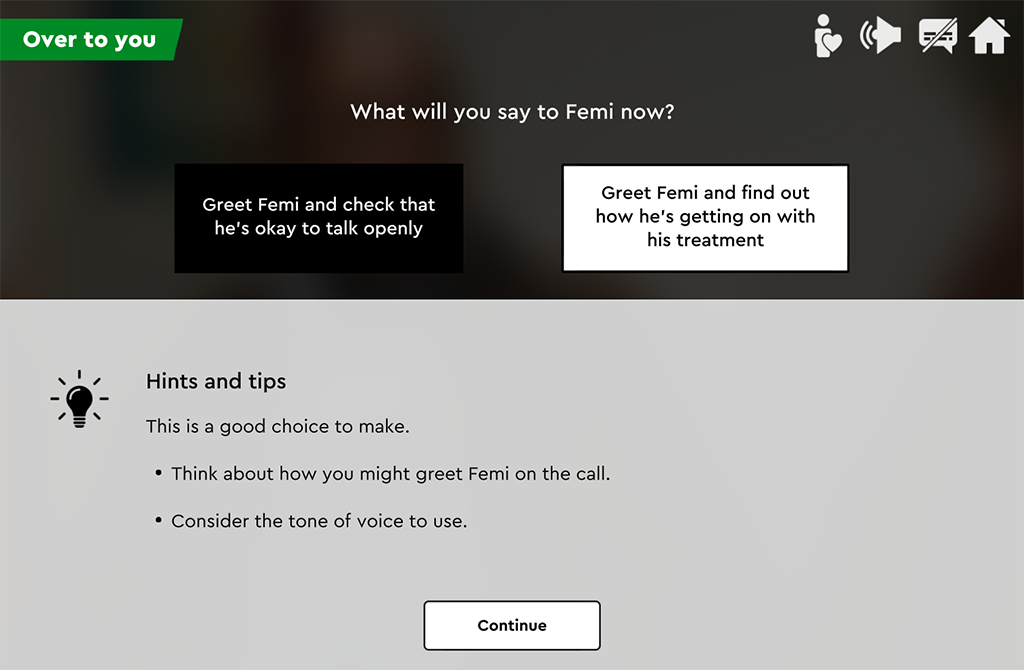
Using their computer camera and microphone, the learner has the follow-up virtual meeting with Femi. They record their own responses, with the topic providing guidance and prompts on what they can say.
Afterwards, the learner watches or listens back to their recording, giving them a safe space to reflect on how they handled the conversation and what they might do differently in future.
The learning is available to any healthcare professional or volunteer and can be repeated as many times as a learner wants, letting them practise their communication skills whenever they feel the need.
So far, feedback has been positive, with comments such as:
We are incredibly proud to have worked on this project with Macmillan Cancer Support. It will forever be one close to our hearts, scripted by our dear friend Jane Buffham. She used her talent for drama writing to create this learning that aims to help support workers have better, more compassionate conversations with people who are living with cancer.
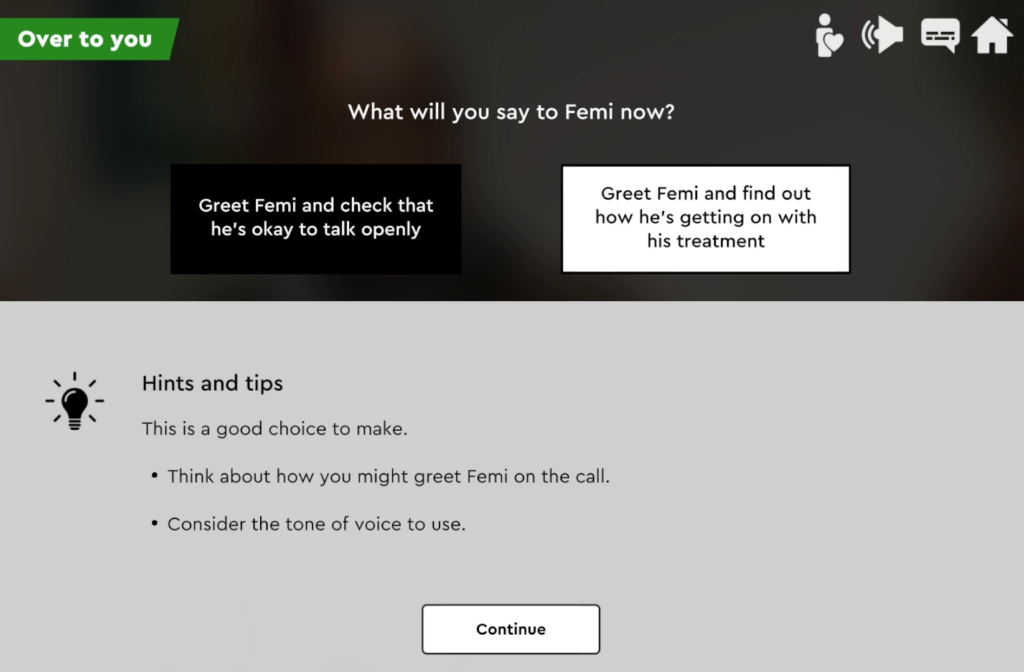

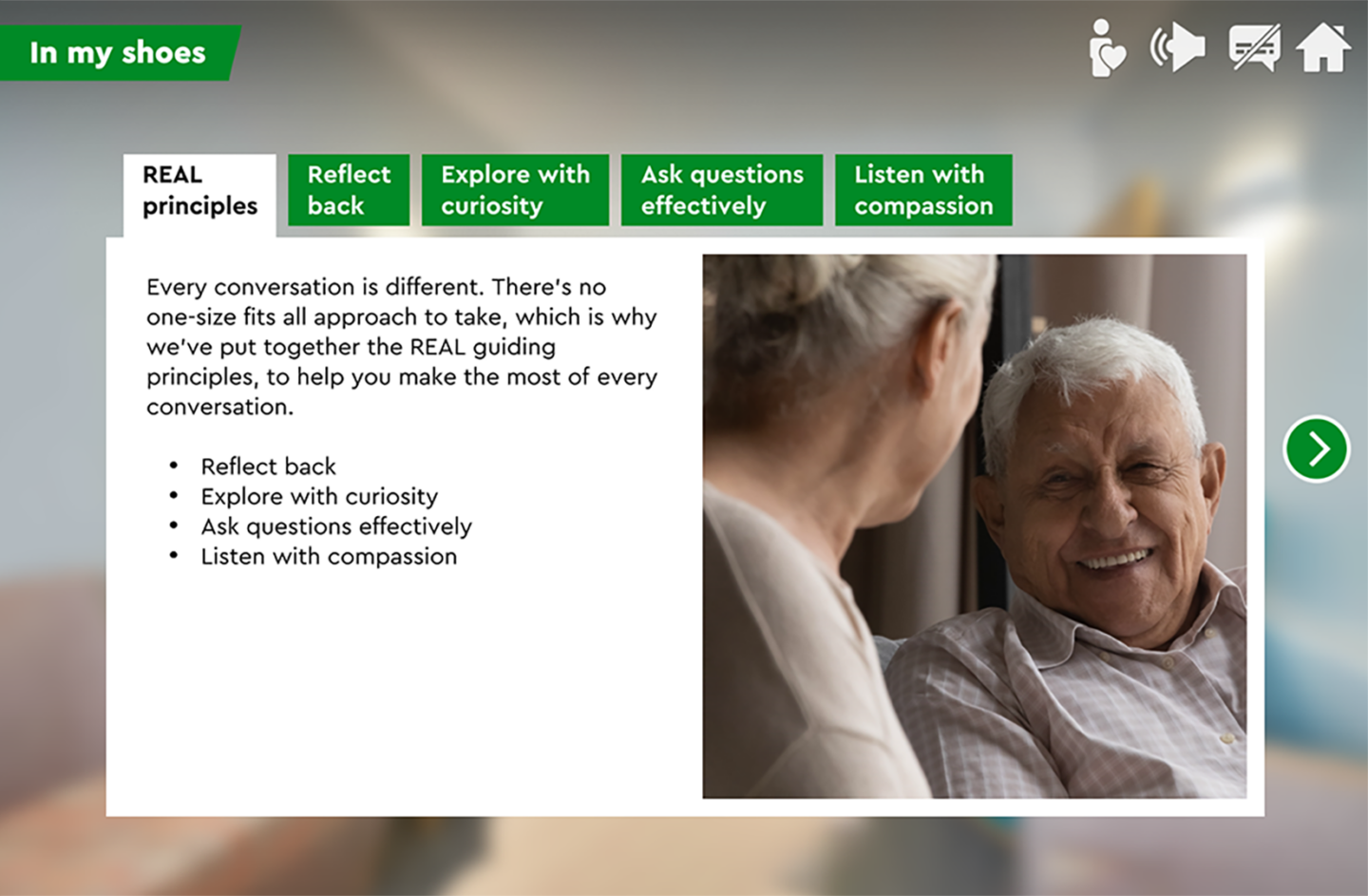
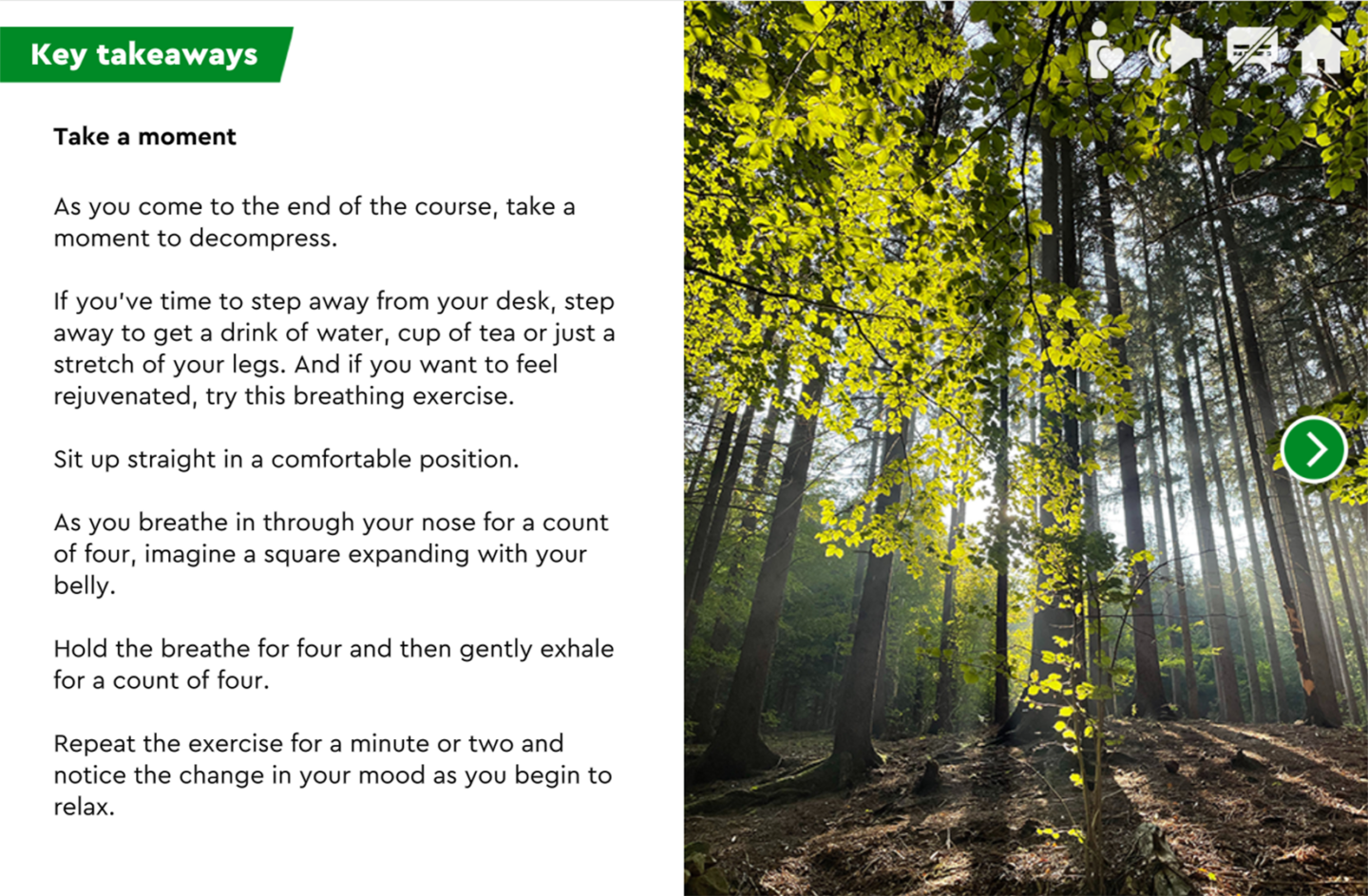
We’re always happy to talk to you about how immersive technologies can engage your employees and customers. If you have a learning objective in mind, or simply want to know more about emerging technologies like VR, AR, or AI, send us a message and we’ll get back to you as soon as we can.